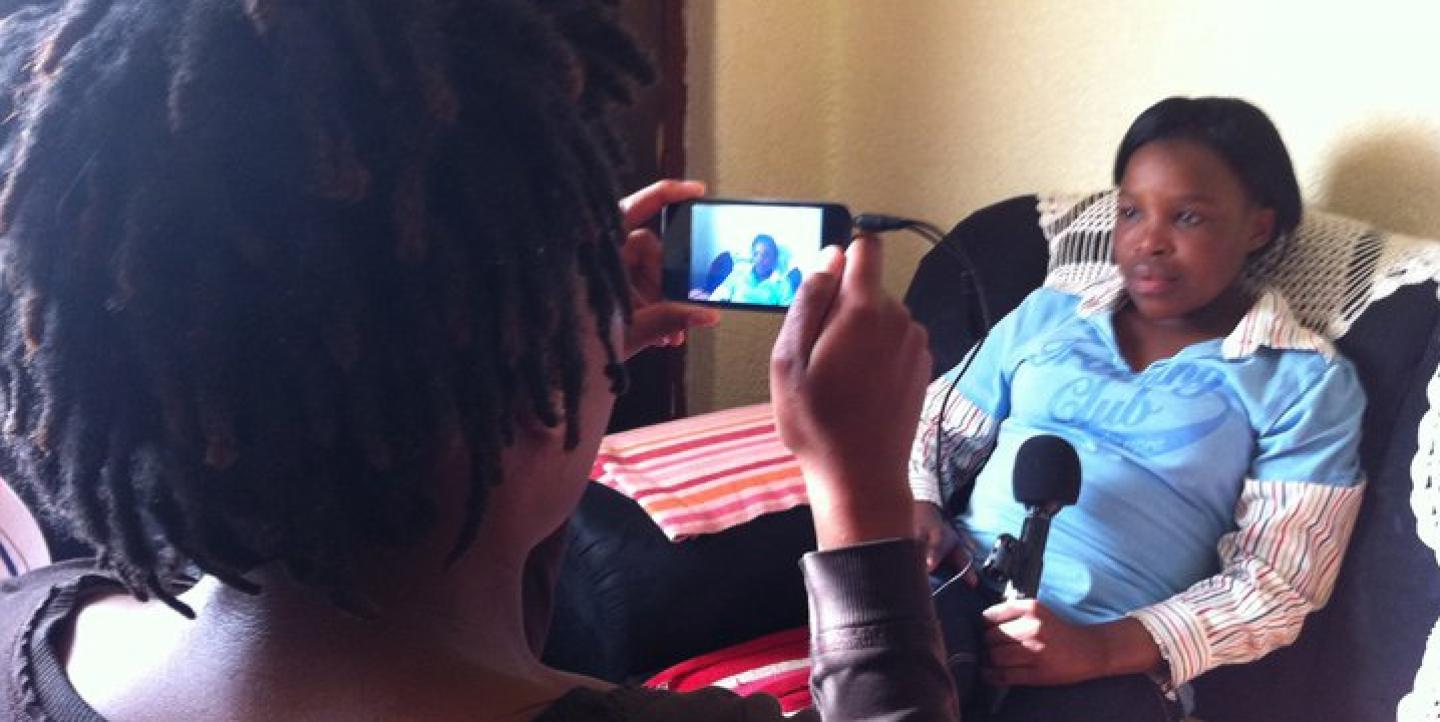Journalism trainer Babatunde Akpeji, an ICFJ Knight International Journalism Fellow, is building a network of citizen journalists to cover health in Nigeria’s Delta region, an area rich in oil and natural resources but beset by severe poverty.
Akpeji trains the citizen journalists in basic reporting techniques, simple audio and video production, mobile tools and journalism ethics. Then, the participants use their mobile phones to send news on poverty and environmental concerns to the Vital Voices for Health website and to media organizations in Lagos and Abuja. Akpeji says mobile devices make it easy for journalists to deliver high-quality work quickly.
“Mobile makes the job easier and faster,” Akpeji told IJNet in an interview. “It significantly reduces the challenge posed by time, [so journalists don’t have to] wait to send content.”
Another advantage of mobile reporting, he said, is that the devices automatically compress content. Though compressed content might not work for print products, many online outlets don’t need high-resolution photos or video.
In the course of working with citizen journalists, Akpeji has put together a list of Android apps that can help reporters in the field be more productive. Unless otherwise noted, they are free of charge.
For the basics
The mobile handsets that the citizen journalists use come preloaded with the mobile reporting applications Timby and StoryCheck. Journalists have found StoryCheck especially useful, Akpeji said. The mobile “editor in your pocket” is aimed at reporters working in small newsrooms with few resources, and at less-experienced freelance journalists who don’t have access to story briefings and debriefings and other essential input from an editor. It guides users through the reporting of a variety of different story types, from crime to courts, and helps ensure there are no gaps in the reporting.
“All you do is follow the steps and check off what you know on a story,” he said. “And it shows you what you might have left out.”
StoryCheck also offers simple guidelines for conducting interviews, counting a crowd and writing. But he says the app doesn’t do all the work -- citizen journalists still must be sure their stories reflect local realities.
Participants in the program also download Dictionaries and Thesaurus for cross-referencing when writing.
Messaging
Whatsapp and Skype are the trend among the citizen journalists using Android devices, Akpeji said.
“If you look at the country of Nigeria, journalists are working in remote areas,” he said. “They’re going to use messaging more than voice calls.”
Whatsapp is useful for sending video, audio and photo files. It also facilitates work in chat groups.
When some of the citizen journalists entered the Hala Nigeria Story Contest, teams of five used Whatsapp to hold group discussions, since journalists were located in different towns and cities.
Social networking apps
Once a story is completed, Facebook, Instagram and Twitter are useful for sharing links to published stories from the Vital Voices for Health website. But the apps also come in handy for crowdsourcing information.
Participants used Twitter and Facebook, for instance, to crowdsource information on how people treat themselves for malaria without going to a clinic.
“That showed that stories really can start and finish on mobile phones,” Akpeji said.
Text, audio and photo
For text editing, Akpeji recommends apps that can open pages similar to Microsoft Word's. Useful apps are Polaris 5 Office, Quickoffice and Kingsoft Office. Polaris 5 Office has the added advantage of being able to open PDF files.
For audio recording and editing, NCH Wavepad, REC Forge and Voice Pro (US$13.49) are excellent apps for CJs who send in stories to radio stations, “as they are able to edit sound bites before emailing to media houses,” he says.
For photos, Fotor is a free photo editor, although Akpeji encourages citizen journalists to turn in unedited photographs, to avoid any ethical issues.
Security
Because downloading apps comes with the risk of viruses and malware, Akpeji requires participants to install antivirus software on their phones. It's important to download the full version of a security app, he notes, since a trial or free version may not provide adequate protection.
Specifically, NQ Mobile Security is recommended for citizen journalists. Kaspersky Internet Security is effective for those who are able to buy the full version with a debit or credit card.
3CX Mobile Device Manager allows users to easily manage and secure Android (as well as iPhone) devices. It blacklists potentially harmful apps, in addition to tracing the phone in the case of loss or theft.
Image courtesy of Flickr user Allissa Richardson under a Creative Commons license.
Jessica Weiss is a freelance journalist based in Bogotá.

